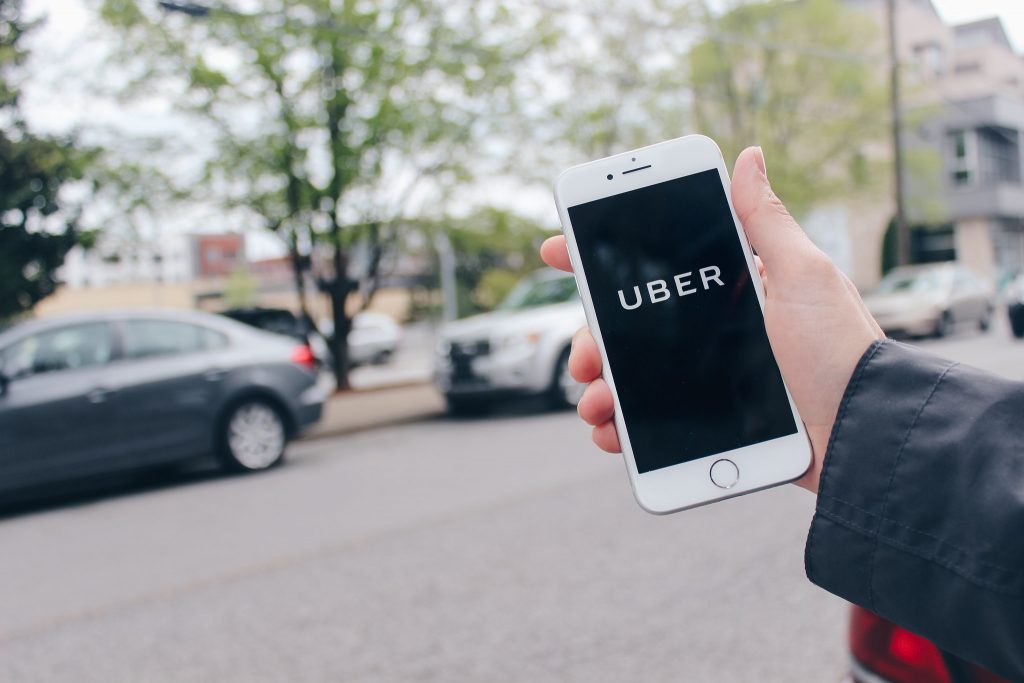
Drivers for Uber are suing over the company’s secretive rating system. (Source: www.quotecatalog.com)
Companies Track Employees with Facial Recognition, Computer Programs
Unless we are self-employed, we generally have to accept the fact that there are supervisors or “a boss” that keeps an eye on our performance at our job. That supervisor probably has a supervisor watching them do their job, too. And now with so many people being forced to work from home during the COVID-19 pandemic, it seems workers are being watched more than ever.
According to a 2019 report from the U.C. Berkeley Labor Center, algorithmic management introduces new forms of workplace control, where technology-based regulation of workers’ performance is focused on each worker and the technology doesn’t need a break, unlike the workers’ boss.
In an article from venturebeat.com, Gary Grossman Edelman presents eye-opening information regarding employee surveillance, both at work and at home.
“Surveillance of employees is hardly new,” Edelman writes. “This started in earnest with ‘scientific management’ of workers led by Frederick Taylor near the beginning of the 20th century, with ‘time and motion’ studies to determine the optimal way to perform a job. Through this, business management focused on maximizing control over how people performed work. Application of this theory extends to the current day. A 2019 report from the U.C. Berkeley Labor Center states that algorithmic management introduces new forms of workplace control, where the technological regulation of workers’ performance is granular, scalable, and relentless. There is no slacking off while you are being watched.”
Factories and warehouse settings, such as at Amazon, were the main locations of company surveillance, but recently the Chinese Academy of Sciences reported that AI is being used on construction sites. These AI-based systems can offer benefits to employees by using computer vision to check whether employees are wearing appropriate safety gear, such as goggles and gloves, before giving them access to a dangerous area. But the darker side to watching employees involves an invasion of privacy.
Last year, Gartner surveyed 239 large corporations and found that more than 50% were using some type of nontraditional monitoring techniques of their workforce. These included analyzing the text of emails and social media messages, scrutinizing who is meeting with whom, as well as the gathering of biometric data. A subsequent Accenture survey of C-suite executives reported that 62% of their organizations were leveraging new tools to collect data on their employees. One monitoring software vendor has noted that every aspect of a company’s operations is becoming more data-driven, including the people side. Perhaps it’s true, as former Intel CEO Andy Grove famously stated, that ‘only the paranoid survive.’
The number of companies offering to spy on employees has risen dramatically, and they are doing far more business since the virus arrived. That kind of monitoring, even at home, is legal in the U.S., down to the keystroke, based on the Electronic Communications Privacy Act of 1986, even though it’s being done in what’s supposed to be a private environment.
Uber drivers in Europe are having issues along the same lines. They are suing the parent company over intrusive algorithms.
Drivers for Uber-Europe Demand Answers
Uber drivers in Europe are suing for access to more of the personal data the company collects on them, as permitted by the EU’s General Data Protection Regulation (GDPR), including information on “profiling and automated decision-making.”
The union representing the drivers said they’re seeking to gain a deeper understanding of the algorithms that underpin Uber’s “automated decision-making” system. This level of transparency, the union said, is needed to establish the level of “management control” Uber exerts on its drivers, allow them to calculate their true wages and benchmark themselves against other drivers, and help them build “collective bargaining power.”
The group alleges that Uber withholds key information from drivers, particularly metrics it uses to monitor their performance, such as late arrivals, canceled rides, inappropriate behavior and attitude issues. This secret performance-related profile data, the plaintiffs argue, is what enables Uber to exert “management control” over drivers.
The case is an important one, according to a story on techcrunch.com:
“It looks like a fascinating test of how far existing legal protections wrap around automated decisions at a time when regional lawmakers are busy drawing up a risk-based framework for regulating applications of artificial intelligence.”
Having algorithms scrutinize your every word, move and driving interaction would be enough to make anyone worried about how they stack up. The drivers’ legal action, which has been filed in the District Court of Amsterdam, where Uber’s European HQ is located, was initiated by four U.K.-based drivers with the backing of the App Drivers & Couriers Union (ADCU), a trade union for drivers and couriers who work for app-based companies like Uber in the U.K.
read more at venturebeat.com







Leave A Comment